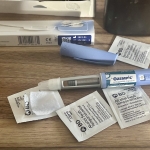AFRICA: WHO advisers urge drugs firms cut prices for poor
International drugs companies should seek to reduce prices for medicines sold to the poorest countries and avoid filing for patent protection there, a report prepared for the World Health Organisation (WHO) said on Monday.
The 228-page study, drawn up by an independent team led by former Swiss president Ruth Dreifuss, also urged rich states not to toughen intellectual property protection conditions in trade pacts to the point where they could limit access to medicines.
"All companies should adopt transparent and consistent pricing policies and should work towards reducing prices on a more consistent basis for low and middle income developing countries," the report said.
Particular attention should be paid to the price of treatments for communicable diseases, notably so-called second generation drugs for AIDS sufferers, it added.
The report did not call for any softening of international patent rights, something that some health activists groups have said is necessary to help boost the supply of cheaper medicines in poorer states.
"Intellectual property rights are important, but as a means not an end," Dreifuss wrote in her introduction to the report.
According to the WHO some 10 million children die each year of preventable diseases. Health care in many poor countries has worsened in recent decades despite global medical advances.
"The probability of dying between the ages of 15 and 60 in Africa has increased since 1990 for both males and females," the report noted.
The report urged the 192-state WHO to develop an international action plan to address the problems of financing research into diseases that principally affect poor countries.
The International Federation of Pharmaceutical Manufacturers & Associations (IFPMA), which represents industry, said it agreed with 70 percent of the report's more than 50 recommendations.
But it criticised the study for recommending that developing countries make greater use of their ability under trade agreements to override patent rights by issuing compulsory licences, when this could help stimulate local medical research.
"It has never been proved that compulsory licensing will increase R&D," IFPMA said in a statement.
- 122 Pharmaceuticals



